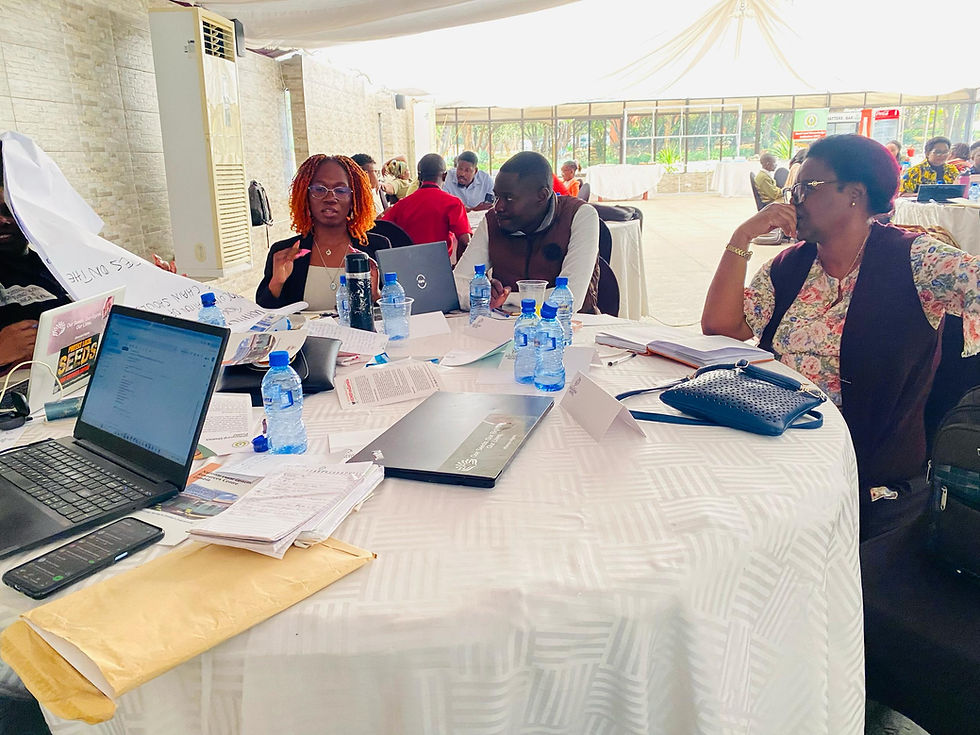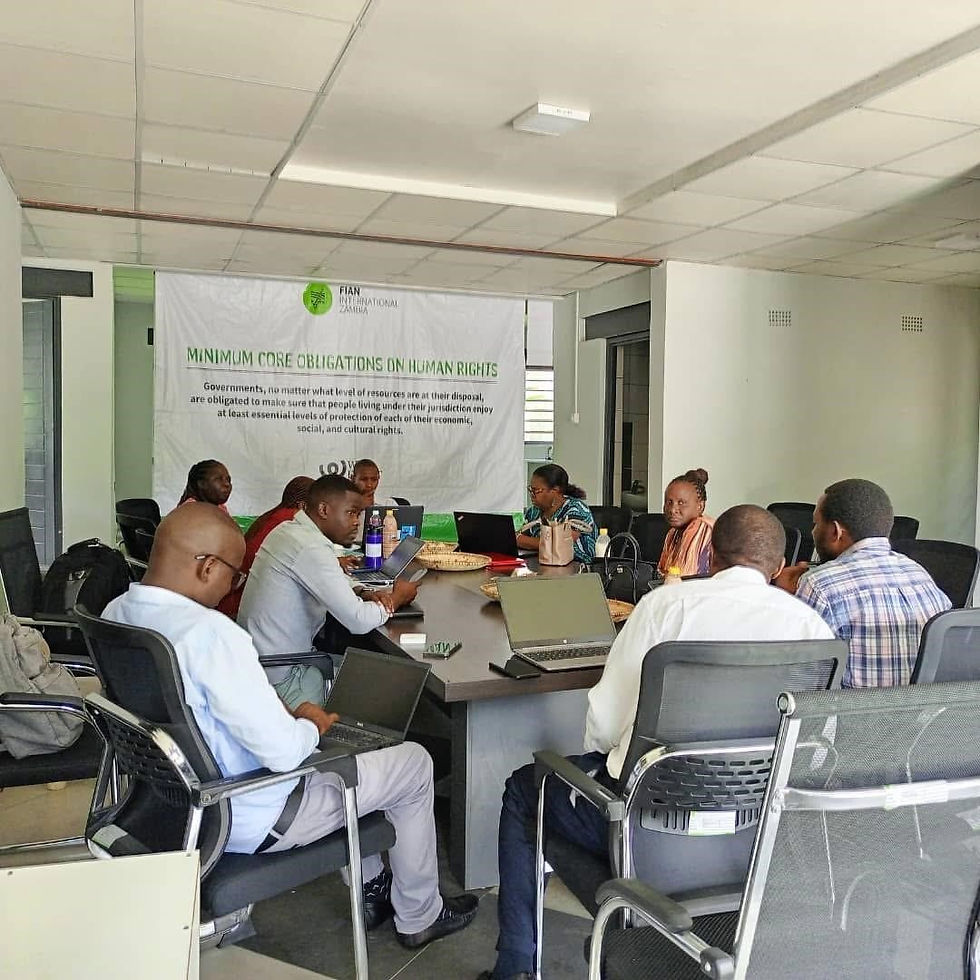Zambia Food Systems Transformation Dialogue theme: Harmonizing Synergies for a Safe, Equitable, and Sustainable Food System
- fianzambia
- Aug 28, 2025
- 2 min read
The 1st Quarter Zambia Food Systems Transformation Dialogue on 8th April, 2025 convened, over 100 stakeholders, including smallholder farmers, CSOs, researchers, youth, and traditional leaders, to advance agroecology and integrated food policies for nutrition, biodiversity, and climate justice. The dialogue, hosted by the CSO-SUN Alliance, reaffirmed Zambia’s commitment to building a sustainable, resilient, and equitable food system aligned with Vision 2030 and SDG targets.
The opening remarks emphasized the urgent need for a food system shift in Zambia, where 48% of the population fails to meet minimum calorie requirements, and childhood stunting remains high. The CSO-SUN Alliance called for stronger legislation to support the transition to safe and just food systems.

Key highlights included:
Agroecology as a cornerstone: Presentations emphasized agroecology’s role in boosting local resilience, environmental sustainability, and seed sovereignty. CSOs advocated for the finalization of Zambia’s Agroecology Strategy and stronger protections for farmers’ rights, particularly around seed ownership and local varieties.
CSO Contributions: The Zambia Alliance for Agroecology and Biodiversity (ZAAB) and partners showcased campaigns on sustainable farming, seed preservation, and resistance to harmful chemical use. Collaborative advocacy efforts aim to protect local food systems and empower communities.
Participatory Guarantee System (PGS): The UBUMI-PGS model was presented as a low-cost, trust-based certification system for organic producers, helping local farmer’s access markets while promoting agroecology.
Youth Innovations: Young farmers showcased projects under the Urban Futures initiative, including mobile apps for agro-weather updates, sustainable snack production, and advocacy for youth-friendly agricultural policies.
Panel Discussions: Smallholder farmers and youth emphasized the importance of local seed promotion, access to land and finance, and scaling agroecological practices. Youth called for continuous engagement, capacity building, and inclusion in food system policy discussions.
CSO Mapping Report: The dialogue revealed gaps in coordination among CSOs and geographic disparities in food system interventions. The report recommended enhanced collaboration, stakeholder engagement, data collection, and advocacy alignment across sectors.
Joint Action Plans: Through group discussions, participants proposed expanded stakeholder inclusion, integration of agroecology into school curricula, stronger community-led advocacy, and the development of IEC materials and position papers.
The event concluded with a strong call to action: scale up agroecology, harmonize policies, mobilize resources, and foster multi-stakeholder collaboration to drive Zambia’s food systems transformation forward.







Comments